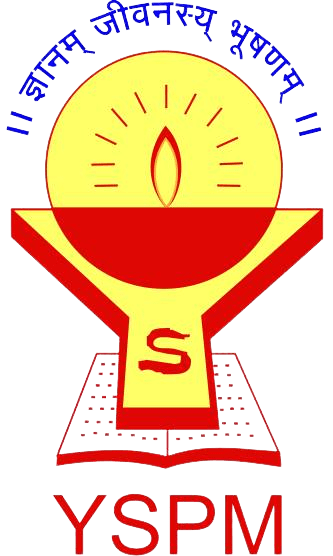Vision of the Department :
To emerge as a center of excellence in Electrical Engineering education producing knowledgeable, employable, and ethical engineering graduates to serve industry/society.
Mission of the Department :
We, at Department of Electrical Engineering, are committed to achieve our vision by-
M1 :Preparing technically and professionally competent engineers by imparting quality education through effective teaching learning methodologies.
M2 :Developing professional skills and right attitude among students that will help them to succeed and progress in their personal and professional career.
M3 :Inculcating moral and ethical values in students with concern to society and environment.
Program Educational Objectives (PEO's) :
PEO1 : Equip with strong foundation in Engineering Sciences and Electrical Engineering fundamentals for becoming real-time problem solver with technical competencies.
PEO2 : Prepare graduates by imparting problem solving skills of core discipline to work in multi-disciplinary environment.
PEO3 : Build professional ethics, sensitivity towards society, environment and life-long learning attitude with leadership qualities.
Program Outcomes (PO's) :
1. Engineering knowledge : Apply the knowledge of mathematics, science, engineering fundamentals, and an engineering specialization to the solution of complex engineering problems.
2. Problem analysis : Identify, formulate, review research literature, and analyze complex engineering problems reaching substantiated conclusions using first principles of mathematics, natural sciences, and engineering sciences.
3. Design/development of solutions : Design solutions for complex engineering problems and design system components or processes that meet the specified needs with appropriate consideration for the public health and safety, and the cultural, societal, and environmental considerations.
4. Conduct investigations of complex problems : Use research-based knowledge and research methods including design of experiments, analysis and interpretation of data, and synthesis of the information to provide valid conclusions.
5. Modern tool usage : Create, select, and apply appropriate techniques, resources, and modern engineering and IT tools including prediction and modeling to complex engineering activities with an understanding of the limitations.
6. The engineer and society : Demonstrate understanding of contemporary knowledge of engineering to assess societal, health, safety, legal and cultural issues and the consequent responsibilities relevant to the professional engineering practice.
7. Environment and sustainability : Understand the impact of the professional engineering solutions in societal and environmental contexts, and demonstrate the knowledge of, and need for sustainable development.
8. Ethics : Apply ethical principles and commit to professional ethics and responsibilities and norms of the engineering practice.
9. Individual and team work : Function effectively as an individual, and as a member or leader in diverse teams, and in multidisciplinary settings.
10. Communication : Communicate effectively on complex engineering activities with the engineering community and write effective reports and design documentation, make effective presentations, and give and receive clear instructions.
11. Project management and finance : Demonstrate knowledge and understanding of the engineering and management principles and apply these to one’s own work, as a member and leader in a team, to manage projects and in multidisciplinary environments.
12. Life-long learning : Recognize the need for, and have the preparation and ability to engage in independent and life-long learning in the broadest context of technological change.
Program Specific Outcomes (PSO's) :
PSO1: Apply fundamental knowledge to identify, formulate, design and investigate various problems of electrical power systems.
PSO2: Apply modern software tools for design, simulation and analysis of electrical systems to engage in life- long learning and to successfully adapt in multi-disciplinary environments.
PSO3: Solve ethically and professionally various Electrical Engineering problems in societal and environmental context and communicate effectively.
